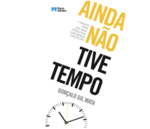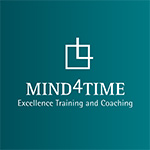San Francisco, USA
Todos sabemos: a disciplina é um reservatório finito. Gasta-se de cada vez que adiamos gratificação imediata em prol de um bem maior. Talvez surpreendente para alguns, é que essa mesma reserva é consumida ao processarmos decisões!
Uma decisão exige avaliar alternativas. Consequentemente, depois do facto consumado, pontuamos a própria decisão para no futuro repetir (se foi bem), ou fazer diferente (se nos arrependemos). Prolongando-se este processo, falamos de "ruminação".
Estamos a ruminar por exemplo ao revermos repetidamente uma certa discussão, analisando tudo o que devíamos ou não ter dito. Cansa tanto ou mais que a decisão em si, e embora parta de uma intenção positiva de melhoria contínua, ruminar pode no entanto tornar-se uma armadilha inconsciente e roubar demasiado espaço a um simples bem-estar.
Quase automaticamente, podemos cair na tentação de escolher, sempre, e a toda a hora, as melhores alternativas para todos os detalhes da vida, neles investindo energia e esforço: o melhor lugar de estacionamento, o melhor lugar da esplanada, a melhor refeição do menú, o melhor lugar no cinema, a melhor fila do supermercado, o melhor papel higiénico... E se mais à frente passamos por um lugar de estacionamento ainda mais perto, sentimos uma ligeira mordidela de pena e ruminamos se deveríamos ter feito melhor.. É, a carreira de otimizador profissional cansa!
Creio que não há dúvida: o melhor lugar de estacionamento é... melhor! De facto, cada processo de escolha é totalmente justificado dentro do seu mundo, dos seus critérios próprios. Mas, no meio de tanta otimização "local", corremos o risco de "desotimizar" aspetos mais globais. Por exemplo a tranquilidade, a liberdade de não ter que decidir bem, a liberdade de não pensar mais no assunto, a qualidade da atenção a um filho, suspenso durante esse intenso momento de eficiência local: "Agora espera! Estou a escolher o melhor lugar de estacionamento... Quanto mais perto, mais tempo vou poupar. Tudo somado, ao final do dia, sobrará então algum para ti... se ainda te apetecer falar."
Poder decidir não ter que decidir bem, quase deixando que o mundo decida por nós, expande a experiência de cada momento. Permite dar espaço a um mundo de sensações que desejamos, e que estão aí mesmo à mão de saborear. O caricato e paradoxal, é que são as mesmas sensações que tanto nos esforçamos por garantir durante os elaborados processos de decisão, sem ver que eles próprios nos podem afastar do que queremos.
Hoje lanço-lhe o desafio de, apenas por uns dias, escolher com menos afinco as pequenas coisas do dia-a-dia. Quanto ao espaço mental que daí sobrar, não o preencha: fique apenas aberto à possibilidade de coisas boas o ocuparem...
We all know: discipline is a finite reservoir. It wears out over time we delay an immediate gratification in order of something greater. It may be surprising to some, but that's the same reservoir being consumed when we process decisions!
A decision requires assessing alternatives. Therefore, after said and done, we punctuate our own decision so in the future it's repeated (if good), or done different (if we regret it). This process being prolonged, we talk about "rumination".
We are ruminating, for instance, when we repeatedly review a certain argument, analyzing everything we could or couldn't have said. It is equally or even more tiring than the decision itself, and though it comes from a positive intention of continuous improving, ruminating may become an inconsistent trap and steal way too much room of a simple well-being.
Almost automatically, we may fall into the temptation of choosing, always and all the time, the best possible alternatives for every life detail, thus investing energy and effort: the best parking spot, the best place on the terrace, the best meal in the menu, the best theatre seat, the best supermarket row, the best toilet paper!… And if we eventually pass, a little bit further, an even better parking spot, we feel a slight sorrow bite and get ruminating whether we should have done better… Indeed, the professional optimizer career is tiring!
I believe there is no doubt: the best parking spot is… better! In fact, every choosing process is totally justified in your own world, your own criteria. But, in the middle of some much "local" optimization, we take the risk of "unoptimizing" more global aspects. For instance the tranquility, the liberty of not having to decide well, the liberty of not giving the matter another thought, the quality of a child's attention, suspended during that intense moment of local efficiency: "Now wait a second! I'm choosing the best parking spot… The closer we park, more time I'll save. All summed up, at the end of the day, then there will be some extra time for you… if you're still in the mood for talking".
To be able to decide not having to decide well, almost leaving it up to the world to decide for us, expands the every moment experience. It allows for room to a whole world of sensations we desire, and that are ready around the corner. The paradoxical and ironic, is that those are the very same sensations that we so hard try to ensure during our elaborate decision processes, neglecting that those processes may take us further away from what we really want.
Today I leave you with a challenge of, just for a few days, investing less effort and energy in choosing the little everyday things. As for the freed mental space, do not fill it: stay only open to the possibility of good things coming along and occupying it…




